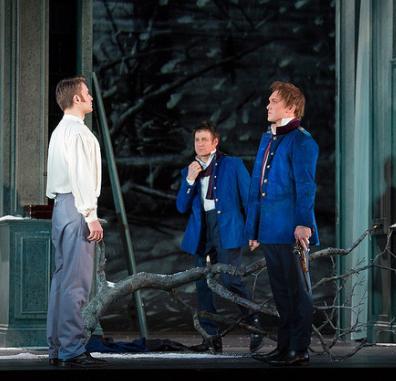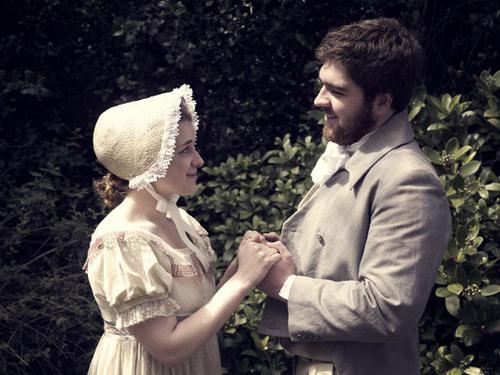A.S. Pushkin is the greatest writer and poet of the 19th century. From his pen came many wonderful works. The main work of Pushkin is considered to be "Eugene Onegin." The work reflects the features of life of the noble youth of the XIX century.
Brief description of the work
"Eugene Onegin" is a verse novel that amazes with its artistic perfection of style and form, ease and beauty of the language. It reveals the variety of problems that worried Russian society at the beginning of the 19th century. In the image of all the noble groups, Pushkin reflects the two most common problems of that time: an idealistic departure from reality and disappointment.
The main characters of the work
Onegin and Lensky in the novel belong to the "best people of the era." In their images, Pushkin reflected the very problems that were most relevant at that time. Heroes were not satisfied with either the splendor of social life, which they considered cold and empty, nor the wretched appearance and primitiveness of rural everyday life. Both characters seek to find meaning in life, something higher and bright. Eugene Onegin and Lensky stand out from the usual aristocratic environment. Both of them are educated, smart, noble. Heroes are united by a breadth of interests and views. This is what brought them together and laid the foundation for the friendship between them. Despite the differences in character, their mutual sympathy in the course of the narration intensified, and communication became deeper. The conversations of the village landowners differed significantly from the conversations that Onegin and Lensky conducted. An analysis of their behavior, aspirations and views allows us to understand that both heroes had an inquiring mind, sought to learn the meaning of life and touch on all spheres of human existence. The author emphasizes that the disputes of the characters affect the philosophical, moral, political problems that worried the advanced people of that era. Why, despite their similarities, did a duel between Lensky and Onegin happen? More on this later in the article.
Onegin and Lensky. Comparative characteristics
These two heroes are the central figures in the work. They are completely different, but have a certain similarity. Their images are two ways that the best representatives of the landlord intelligentsia of the early 19th century followed. The development of the relations of the main characters reflects the huge difference between them, highlighting not only the opposite of their features, but also the attitude to reality and to the people around them. These two paths could end either in a dead end in life or in someone else's death.
Vladimir
In Lensky, there was a poetic talent that opened up romantic moods in him. He sees the ideal even in the "empty" pretty Olga. Friendship with Onegin means a lot to Lensky. The image of Vladimir clearly shows a connection with the Decembrist trends, which suggests the likelihood of his rapprochement with the advanced noble intelligentsia, preparing the uprising of 1825, which gives him a chance to become a poetic voice of the people. Belief in friendship, freedom, love was the purpose of life and the essence of Lensky.
Eugene Onegin
This hero received a classic aristocratic education. He was taught everything in jest, but despite this, Onegin received the knowledge he needed. In terms of mental development, he stands much higher than his peers. Eugene is a little familiar with Byron's works, has an idea of the works of Smith. But all his hobbies do not raise in the soul ardent and romantic feelings. Onegin spends his best years, like many young people of his time: in theaters, at balls, in love affairs. But soon he comes to the understanding that this whole life is empty, envy, boredom and slander reigns in the world, and people senselessly burn their time, spending their inner strength on an imaginary brilliance. As a result, Onegin loses interest in life, falling into a deep blues because his sharp and cold mind is saturated with secular pleasures.
Questions of good and evil in the relationship of the main characters

Among the intelligentsia of that time was a very popular treatise of Rousseau (writer and French philosopher) "Social contract." It addressed the most important social problems. The most topical was the question of state structure. The problem of the relationship between the government and the people with the right to overthrow the government, which violated the agreement between the state union and the community of citizens, was revealed. The existing serfdom in Russia created both political and economic difficulties. Progressively-minded representatives of the nobility tried to find a solution to the existing problems by improving and introducing methods of agriculture, the use of machinery. Onegin and Lensky, whose comparative characterization would not be complete without an indication of their type of activity, also thought about this issue. The first was the owner of waters and factories, and the second was a wealthy landowner. Ethical issues, the issues of good and evil, have often been the focus of attention of young people. Moral theoretical principles, refracting in the characters' characters, determine both their views and their actions.

The tragedy of the relationship of the central characters
Onegin and Lensky, whose comparative characteristics can not do without mentioning their personal qualities, were of different ages. Vladimir is younger, his ardent soul is not yet spoiled by life. He seeks beauty everywhere. Onegin, who had passed through everything long ago, listened to Lensky's fervent speeches with a smile, trying to restrain his irony. Friendship was an urgent need for Vladimir. Onegin was "friends for the sake of boredom." But Eugene has a special affection for Vladimir. Carrying out the analysis of the duel between Lensky and Onegin, it is impossible not to note the priorities that are fairly clearly traced in each of them. So, the more experienced protagonist, despite his contempt for the light, valued his opinion, was afraid of reproaches and ridicule. Perhaps it was precisely because of this false sense of honor that Onegin accepted Lensky's challenge. Vladimir defended the purity of his romantic ideas from the skepticism of a friend. Perceiving Onegin's unsuccessful joke as betrayal and treason, Lensky challenges him to a duel.
The death of Vladimir
Onegin and Lensky, the comparative characteristics of which show the essence of the differences in their views, in the course of the development of the plot from their best friends turned into enemies. The first, having received a challenge and understanding the meaninglessness of the fight itself and his wrongness, accepts it. The murder of Vladimir turns the whole life of Eugene. He is no longer able to be in those places where the tragedy occurred. Tormented by remorse, Onegin begins to rush around the world. However, as can be seen further, changes are taking place in his soul: he becomes more sensitive and responsive to people, his heart opens for love. However, here he will be disappointed. Comparing all the events, we can conclude that all his misfortunes are a retribution for a life lived without a goal.
conclusions
It can be said with certainty that Lensky’s death is symbolic. Involuntarily, it leads to the idea that a romantic, a dreamer, an idealist - a person who does not know reality, must collide with it when he collides with it. At the same time, skeptics like Onegin remain alive. They cannot be blamed for not knowing reality or idealism. Onegin knows life very well, knows how to understand people well. However, what did this knowledge give him? In addition to disappointment and distemper, unfortunately, nothing. Consciousness of their superiority over others puts a person on a rather dangerous path, which ultimately leads to disunity from the world and selfish loneliness. The surviving Onegin is of little use to society and does not become happy.
Conclusion
In his novel, Pushkin showed reality as it was at that time. His work warns that only mediocre people whose interests are small and very limited can find happiness in a rotting society from within. “Extra People” - Eugene Onegin and Lensky (an essay on this subject is included in the school course of literature) - are unhappy in this life. They either die or continue to live devastated and disappointed. Even their high position and education do not give them happiness, do not facilitate their path. Awareness of their own mistakes comes to them too late. However, it is difficult to blame the heroes themselves. Their life goes on under the conditions of light, which dictates its rules to them and places them in certain conditions. Their characters are formed from birth under the influence of what is happening around them. As Pushkin himself says, it was exclusively the environment that made Onegin and Lensky, essentially noble, intelligent people, unhappy and disappointed.